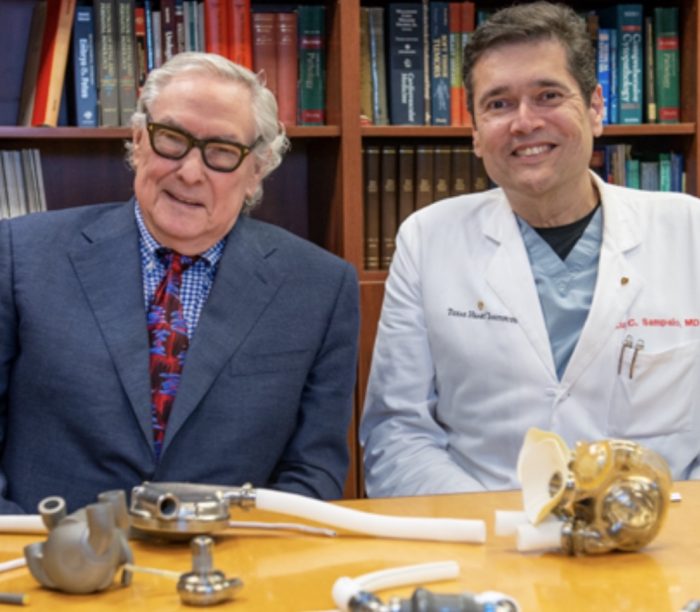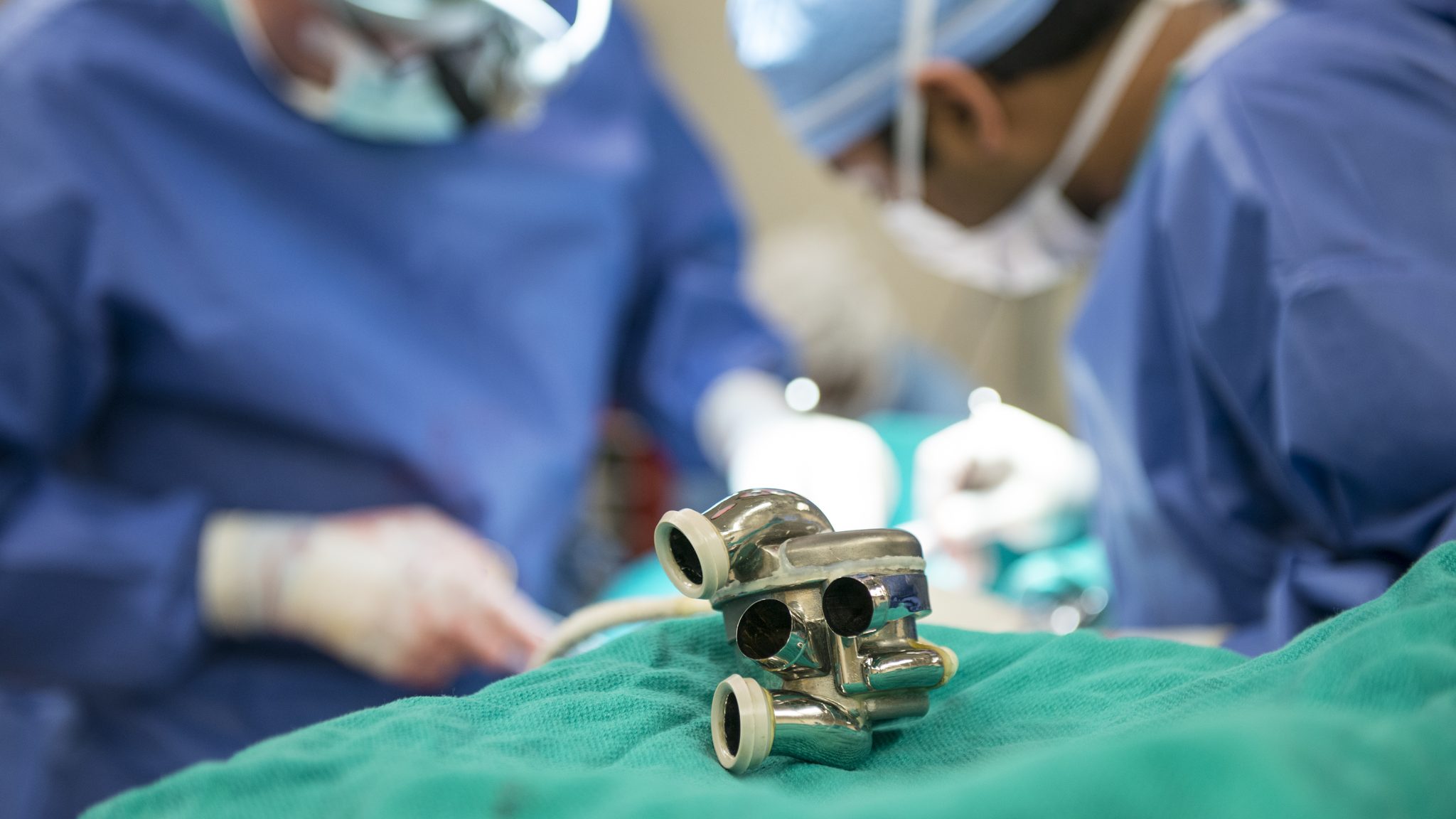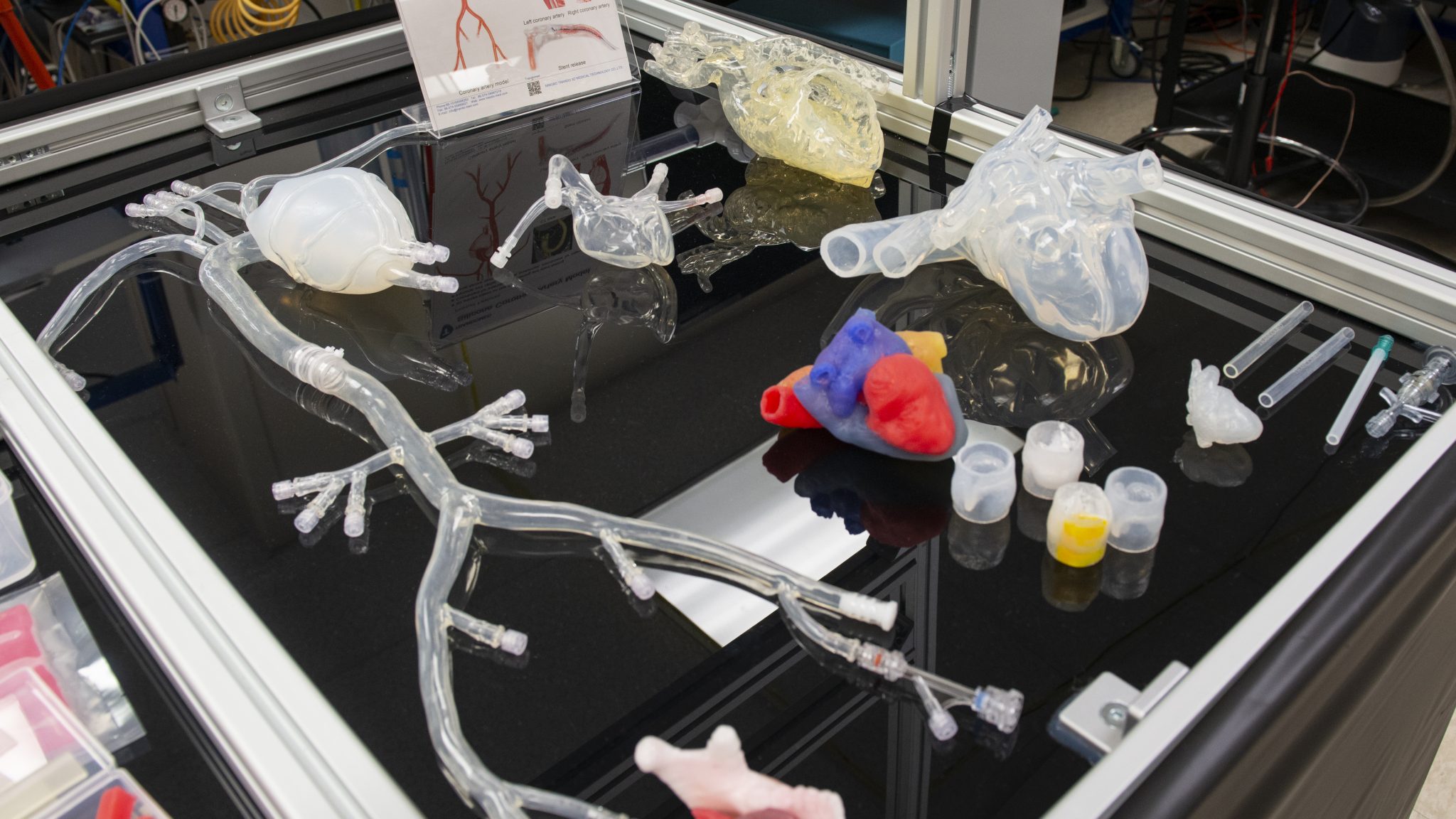“The preclinical research laboratory at THI reflects the high standard of excellence established by Dr. Cooley and Dr. Frazier over the last five decades. Today, we have the resources necessary to imagine and execute translational studies that, in many cases, will lead to the next first advancement in cardiovascular care.”
–Luiz Sampaio, MD, Co-Director Center for Preclinical Surgical and Interventional Research
The preclinical research labs at THI were launched in the 1970s with the development of the left ventricular assist device (LVAD), which is intrinsically linked to the work of Dr. O.H. Frazier, one of the most respected heart surgeons in the world.
Today, the Center for Preclinical Surgical and Interventional Research, under the direction of Dr. Luiz Sampaio and Dr. Frazier, is home to important internal and external research collaborations.
The state-of-the-art resource makes possible early discovery by our physician-scientists every day. In 2018, several internal collaborations were launched, including anti-arrhythmia and surgical device development projects with Dr. Mehdi Razavi, interventional and cell therapy studies with Dr. Emerson Perin, and regenerative medicine studies with Dr. Sampaio and Dr. Doris Taylor.
Medical device companies and agencies working on the design, development, and testing of a wide range of innovative projects partner with THI every year.
Members of the Center authored 17 publications in peer-reviewed journals, including the Annals of Biomedical Engineering, a top-quartile journal. The team also lectured at 12 regional, national, and international meetings and hosted several trainings for industry.
As we continue our 55+ years of innovation, we are committed to harnessing the expertise of our talented team and welcome collaboration in one of the most treasured resources in the Texas Medical Center.
THI aims to radically improve devices for heart failure patients
Texas Heart Institute is working on a project intended to radically improve blood-pumping devices for patients with heart failure. If successful, the device could be used to treat heart failure earlier in the course of the disease, perhaps preventing it from progressing to its critical stages. The device could even prevent the need for a heart transplant altogether.
THI Explores Advanced 3D Printed Silicone Technologies
“Researching implantable heart-assist devices by using rigid engineering materials has limitations that silicone models overcome.”
– Alex Smith, PhD, Engineer, Center for Preclinical Surgical and Interventional Research
THI is employing 3D printing technology that uses soft materials like silicone and hydrogel to create models for use in testing heart-assist devices during development.
In the past, the lab has used rigid plastic pipes to represent the body’s circulatory system. With 3D technology, the team is able to create testing models that are more realistic because they use soft, 3D printed materials that are more similar to real human tissue.
The 3D printing technology can also be used to create realistic silicone models of human organs and anatomy for use in surgical and medical training workshops.
Director Spotlights

O.H. Frazier, MD
For more than 30 years, Dr. Frazier has been a pioneer in the treatment of severe heart failure and in the fields of heart transplantation and artificial devices that may be used either to substitute for or to assist the pumping action of the human heart. As a result of his work, Texas Heart Institute (THI) has one of the world’s top transplantation and mechanical circulatory support programs. Dr. Frazier has performed over 1,300 heart transplants and implanted more than 1,000 left ventricular assist devices, more than any other surgeon in the world. Dr. Frazier’s pioneering work in the field of circulatory support has resulted in more than 45,000 LVADs being implanted in patients worldwide as a life-saving effort, the design of most of these devices having been conceived or developed in Dr. Frazier’s THI laboratory.
A friend of THI and beloved Texan author, Mimi Swartz, captured the essence of his lifelong journey in her book Ticker, the story of Dr. Frazier’s quest to create an artificial heart.
In 2018, Dr. Frazier received two of the world’s most prestigious lifetime achievement awards: the International Society of Heart and Lung Transplantation’s 2018 Lifetime Achievement Award, and the American Association for Thoracic Surgery’s 2018 Lifetime Achievement Award in Mechanical Circulatory Support.
Dr. Frazier received numerous honors before 2018, including the Living Legend Award from the World Society of Cardiothoracic Surgeons, the Gift to Mankind Award from the American Organ Transplant Association, the Distinguished Surgeon Award from the Houston Surgical Society, the Honored Physician Award from the American Heart Association Guild, the Ray C. Fish Award for Scientific Achievement in Cardiovascular Diseases from THI, the Denton A. Cooley Cardiovascular Surgical Society International Recognition Award, the Kauffman Heart Failure Award of Merit from the Cleveland Clinic Foundation, and the Dr. Barney Clark Award from the Medforte Research Foundation, in recognition of his pioneering efforts in the clinical advancement of cardiac transplantation and of mechanical circulatory support and replacement devices.
Luiz Sampaio, MD
Dr. Sampaio has devoted his entire career to reducing the burden of cardiovascular disease, first as a practicing cardiovascular surgeon and now as a regenerative medicine researcher. As co-director of the Center for Preclinical Surgical and Interventional Research, he now applies his medical and surgical skills to developing new approaches to preventing, diagnosing, and treating heart disease. He provides medical and surgical expertise and training, organizational leadership, and business development and fiscal management experience to the Center; his contributions include overseeing research projects, gathering and analyzing data, co-authoring manuscripts to disseminate scientific findings, and coordinating the translation of scientific discoveries through clinical trials, FDA approvals, licensing, and business development protocols. He has co-authored several peer-reviewed publications, textbook chapters, and conference abstracts.

.svg)




